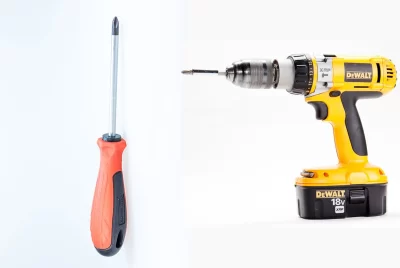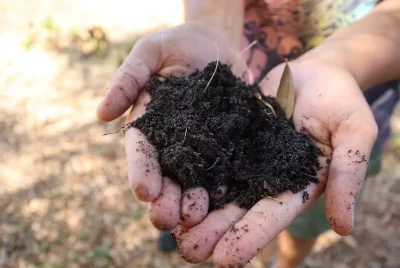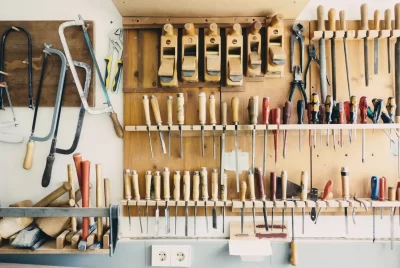How to Use a Trowel: A Comprehensive Guide
Introduction
As an avid DIY enthusiast and seasoned advisor, I understand the importance of having the right tools for the job. When it comes to tasks like gardening, masonry, or even laying tiles, a trowel can be your best friend. However, using a trowel effectively isn’t as straightforward as it may seem. In this article, I’ll guide you through the proper techniques, different types of trowels, and which one to use in various situations. By the end, you’ll have a solid understanding of trowels and how to make the most of them.
Getting to Know Your Trowel
What is a trowel?
A trowel is a versatile hand tool with a flat, pointed, or curved blade. It’s primarily used for spreading, shaping, and smoothing materials like concrete, mortar, and soil. Trowels come in various sizes and shapes, making them suitable for a wide range of tasks.
Different types of trowels
Trowels are not one-size-fits-all tools. There are several types, each designed for specific purposes. The key trowel types include garden trowels, masonry trowels, and flooring trowels. Let’s explore their unique characteristics and applications.
Selecting the Right Trowel for the Job
Garden Trowels

Garden trowels are small, handheld tools with a pointed blade. They are perfect for digging holes, transplanting plants, and weeding. The ergonomic design and lightweight construction make them ideal for precision work in the garden.
Masonry Trowels
Masonry trowels have a rectangular blade, typically made of high-carbon steel. These trowels are essential for tasks like bricklaying, plastering, and concrete work. They come in various sizes, with larger ones for spreading mortar and smaller ones for intricate detailing.

Flooring Trowels
Flooring trowels are designed for working with floor materials such as tile adhesive, grout, and leveling compounds. They have a square or rectangular blade and are often equipped with notches for spreading adhesive evenly.
Proper Techniques for Usage

Holding your trowel
The way you hold your trowel depends on the task at hand. For precise work, hold it like a pencil. For broader strokes, grip the handle firmly. Ensure a comfortable grip to avoid hand fatigue.
Troweling concrete or mortar
When using a masonry trowel, start by loading it with the material, then apply even pressure while spreading and smoothing. Keep the blade clean to prevent clumps.
Using a trowel in gardening
Garden trowels are great for planting and weeding. Insert the pointed blade into the soil to create a hole for your plant. Use the flat side to level the soil around the plant’s base.
Maintaining
Cleaning
After each use, clean your trowel to prevent material buildup. Scrape off any residue, rinse it with water, and dry it thoroughly to prevent rust.
Preventing rust
Rust can damage your trowel and make it less effective. To prevent rust, keep your trowel clean and dry, and consider applying a light coat of oil or grease to the blade before storing it.
Choosing the Best trowel for the Job
Best trowels for gardening
For gardening tasks, a pointed garden trowel is a must-have. Look for one with a comfortable handle and sturdy construction. Stainless steel trowels are a great choice as they resist rust.
Best trowels for masonry
When working with mortar and bricks, a high-quality masonry trowel is essential. Choose a size that suits your specific task, and opt for a trowel with a durable blade and comfortable handle.
Best trowels for flooring
For flooring work, go for a flooring trowel with notches that match the size of your tiles. This ensures an even application of adhesive. Look for trowels with a sturdy blade and a comfortable grip.
Conclusion
In conclusion, using a trowel effectively depends on the right type, proper technique, and maintenance. Garden trowels, masonry trowels, and flooring trowels each have their unique purpose. By selecting the best tool for your task and mastering the proper techniques, you’ll achieve exceptional results every time.
Frequently Asked Questions
Q1. Can I use a garden trowel for masonry work?
Garden trowels are not suitable for heavy-duty masonry work. It’s best to invest in a quality masonry trowel for such tasks.
Q2. How often should I clean my trowel?
It’s advisable to clean it after every use to maintain its effectiveness and prevent rust.
Q3. Are there ergonomic trowels available for people with hand discomfort?
Yes, there are ergonomic trowels designed to reduce strain on your hands and wrists during use. Look for models with padded handles.
Q4. Can I use a flooring trowel for gardening?
While it’s not the most practical choice, you can use a flooring trowel for gardening tasks if it’s the only option available. However, a garden trowel is more suitable for precision work in the garden.
Q5. What’s the best way to store trowels long-term?
To prevent rust and damage, store your trowels in a dry place. Applying a light coat of oil or grease to the blade before storage can also help protect them.
Summary
Unlock the full potential of trowels with this comprehensive guide. Explore the various types of trowels, from precision garden tools to robust masonry and flooring instruments, helping you make informed choices for your specific projects. Delve into the proper techniques for holding and maintaining, ensuring optimal performance and longevity. Whether you’re a gardening enthusiast, a masonry pro, or a DIY tiler, this guide equips you with the expertise needed to wield your trowel effectively, enhancing the quality and efficiency of your work.
Now that you’re armed with the knowledge of their types and their proper use, you can tackle various projects with confidence. Remember, the right tool and technique can make all the difference in the quality of your work. Happy troweling!




